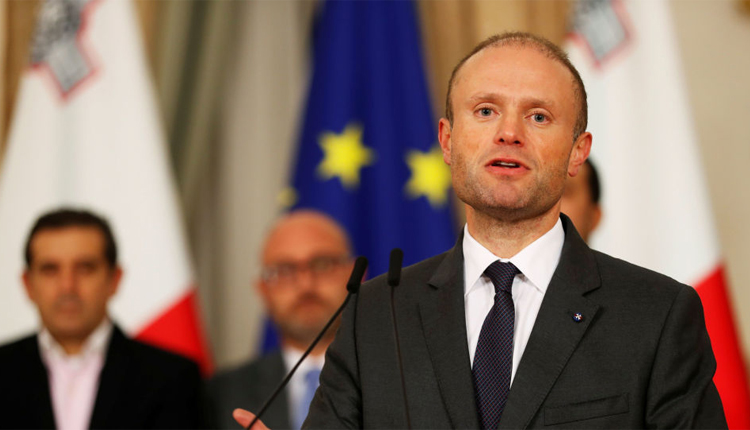Maltese Prime Minister Joseph Muscat, engulfed in crisis over the probe into a murdered journalist, announced on Sunday he planned to step down, saying he would ask his ruling Labour Party to start choosing a new leader for the country next month.
Calls for Muscat to quit had intensified after the investigation into the 2017 car bomb killing of anti-corruption journalist Daphne Caruana Galizia led to charges on Saturday against a prominent businessman with alleged ties to government ministers and senior officials.
In a televised address on Sunday evening, Muscat said he was not leaving immediately, rather announcing a process to replace him that will start on Jan. 12.
This drew immediate criticism from some opponents who said he should go right away.
“I will write to the president of the Labour Party so that the process for a new leader is set for 12th January 2020. On that day I will resign as leader of the Labour Party. In the days after I will resign as prime minister,” Muscat said.
“Our country thus will start a short process of approximately a month for the Labour Party to choose a new leader and a new prime minister,” he added.
Thousands of people took part earlier on Sunday in an anti-government protest in Valetta, the capital of the tiny Mediterranean archipelago, with members of the Caruana Galizia family leading the march.
In his address, the prime minister struck a defiant tone, saying that every day since the murder he had shouldered responsibilities in “the interests of the conclusion of the case”. He added, however, that “some decisions were good while others could have been better made”.
“All the responsibility I had to shoulder surely does not compare to the pain that the victim’s family is enduring,” added Muscat, 45.
There was no immediate reaction from the family, which had called for him to step down.
Muscat acted after businessman Yorgen Fenech, 38, was taken to a Valletta court late on Saturday and charged with complicity in the murder. He pleaded not guilty to that and other charges.
Fenech was charged after the government turned down his request for immunity from prosecution in return for revealing information about the murder plot and about alleged corruption involving Muscat’s former chief of staff Keith Schembri and former Tourism Minister Konrad Mizzi, among others, court filings showed.
Schembri and Mizzi resigned on Tuesday and Schembri was interrogated for two days by police before being released without charge. Schembri has denied any wrongdoing. Mizzi on Tuesday denied any business links with Fenech and any wrongdoing.
Critics are angry with Muscat for sticking by Schembri, an old friend since school, and including Schembri in security briefings on the investigation even after Fenech was identified both as a suspect in the murder and an associate of Schembri.
